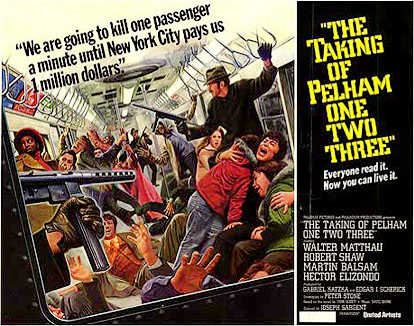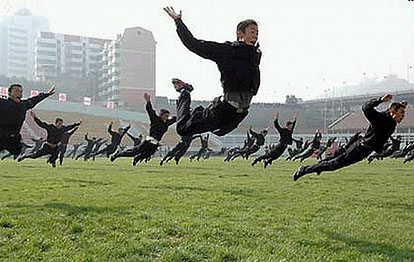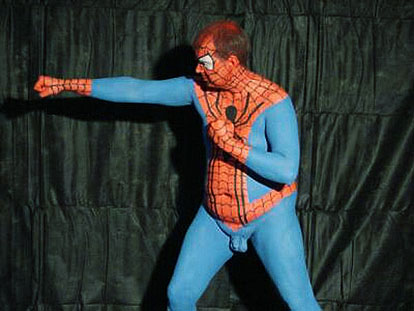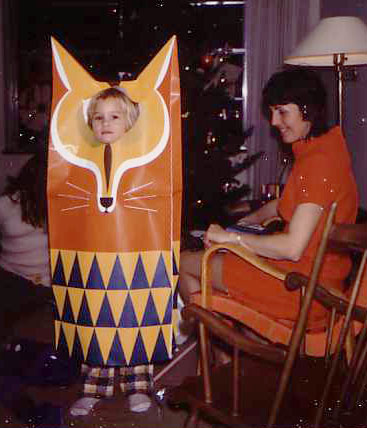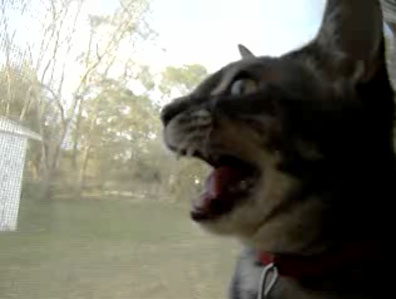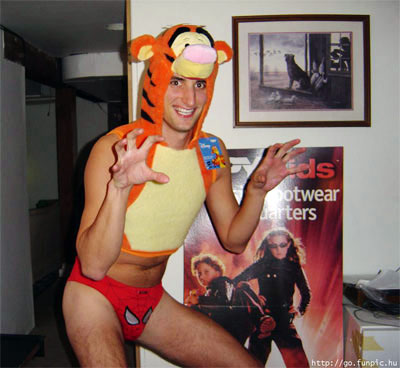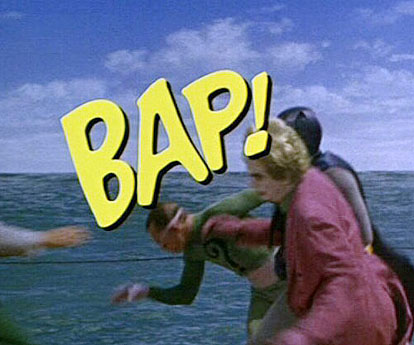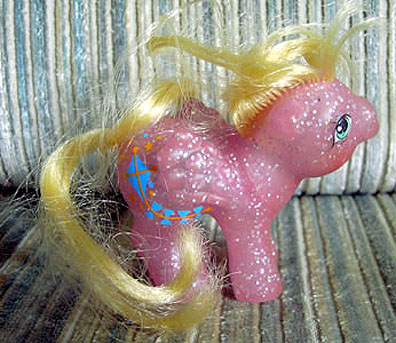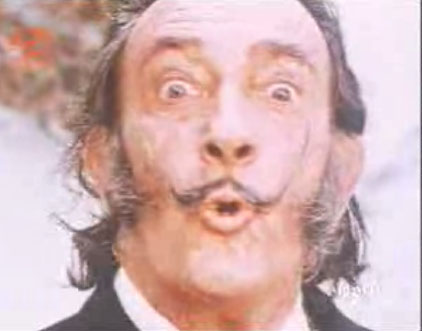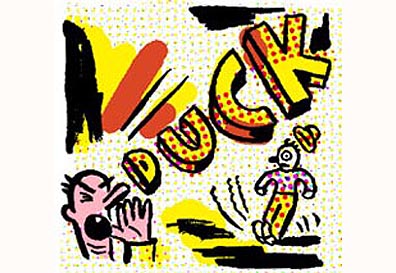
A dip into the reals: There is a controversy swirling here at beige. It involves our manager -- I will call him "Gustave" -- and co-worker, whom I will call "Benjamin." We are all friends & hang out socially outside of beige. We all work closely together in the same little pod. Gustave is a writer/actor/musician with an ironic wit, and there is a constant level of humorous & biting banter in our cube. Occasionally he will refer to something as "so gay." Gustave is not, by the way, gay. Benjamin is gay, and takes offense. However, Benjamin doesn't mind the phrase "so queer," which he says is different, more open-ended in meaning or something. Gustave has grudgingly agreed to curb his use of the offending phrase around Benjamin, but will use it when Benjamin isn't within earshot.
In a related story, last week Tiger Woods issued an apology to the spastic community for using the word
"spaz" to describe his "atrocious" performance on an off-day.
Now, I, slothy, have been known to use the word "spaz" on occasion, also "mutant" and "tard," even though I have a developmentally disabled niece. I am now thinking that perhaps it is time to examine my use of potentially offensive language more thoroughly. I really don't want to be using hateful language, but am rankled by the idea of self-censorship, and "spaz" is, well, exactly perfect for certain occasions. What about "deaf" or "blind?" Is "flying blind" offensive to the blind community? Can I say a fashion victim looks like she was dressed by a blind person? One time, when talking to an African-American woman, I off-handedly said I had been busy "slaving away" in the studio, & felt immediately self-conscious and embarrassed. I would never use the "n" word, or any word that referred derogatorily to a racial minority, whether a member of said minority is present or not, because I think these terms are hateful and ugly. Does this same logic apply to those other words and phrases? Are the rules suspended in the service of comedy?
These eggshells are hurting my feets.
